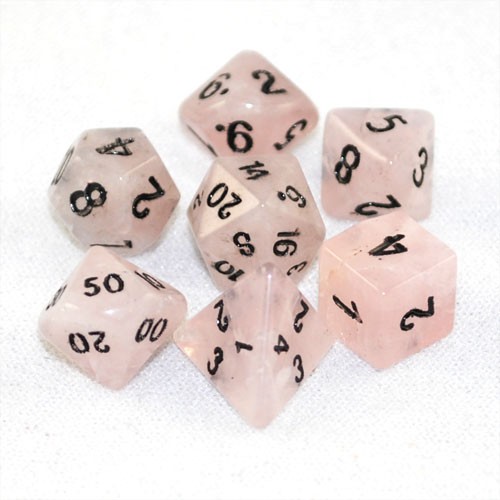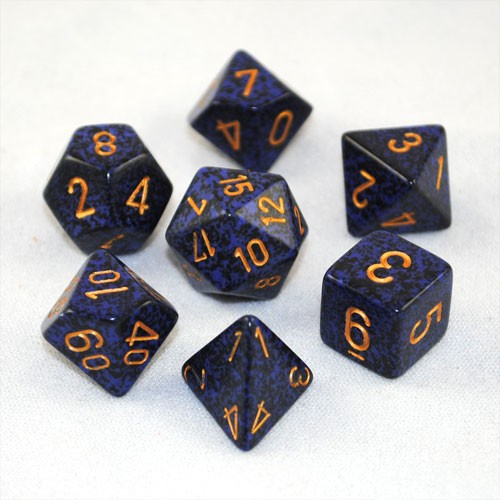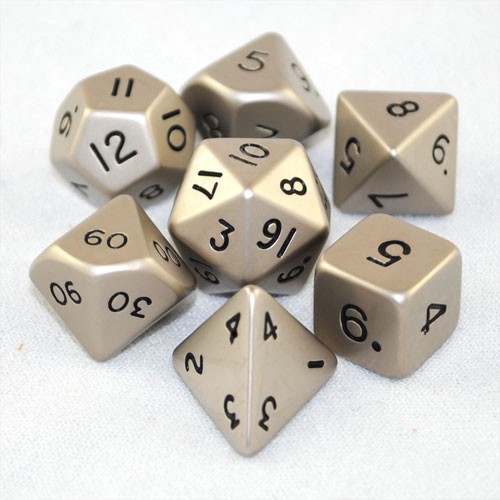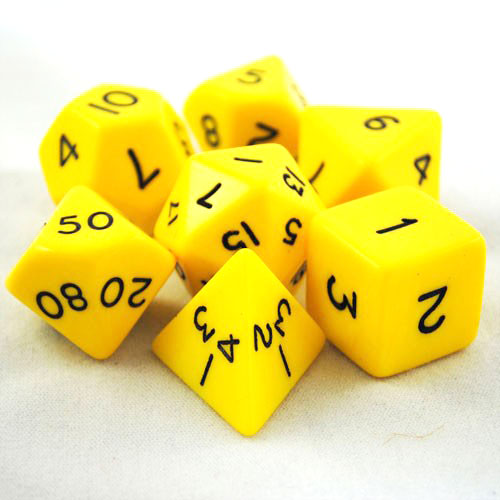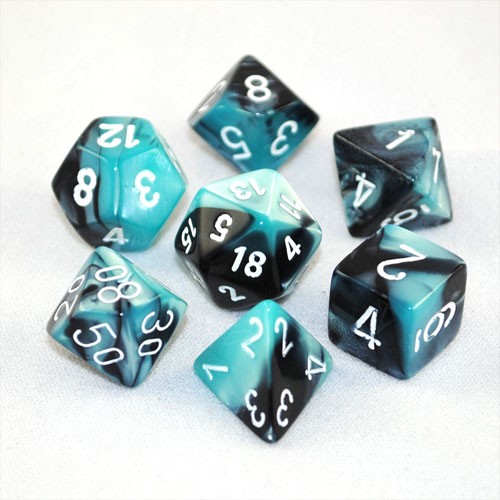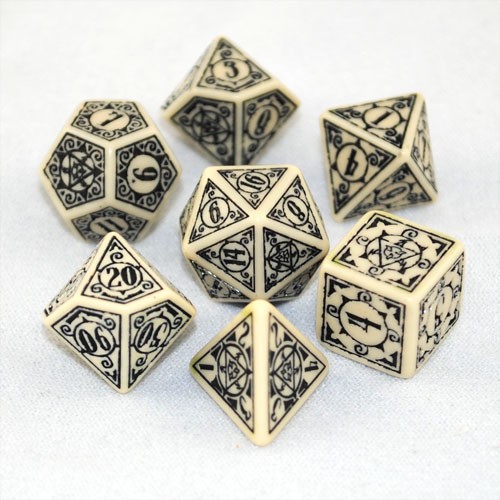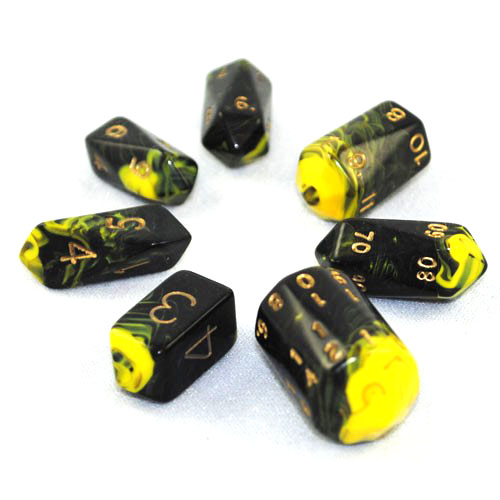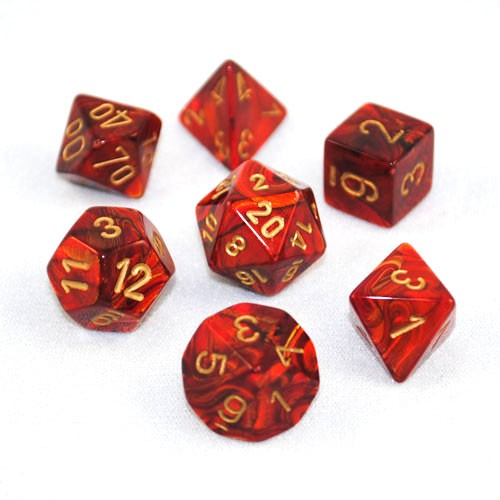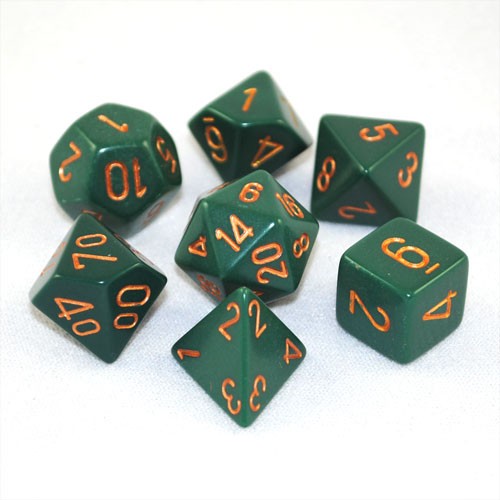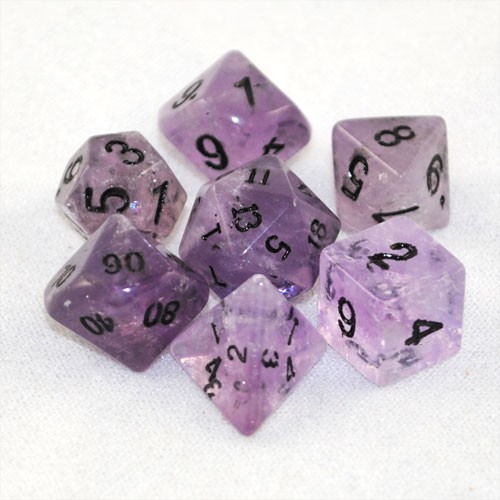It's kind of random, but that's the whole point.
Some games are deterministic—that is, they don't have any random element—but other games make you roll the dice. Why is that?
Competing against another player in a game of skill actually changes your hormone levels. In fact, after winning a player-vs.-player video game, a male's testosterone levels surge. It feels great! The downside is that there is a corresponding decrease in testosterone levels by the loser. The thrill of victory and the agony of defeat.
This winner-takes-all competition can be loads of fun when you're playing against strangers online, but it's not the best way to make friends in real life. When you're playing a game as a social bonding activity, you don't want your friends to go home depressed.
That's where the dice come in! By adding an element of randomness to a game, both the thrill and the agony of the outcome are muted. I mean, hey, it's not your pal's fault he got killed by that dragon, it was just an unlucky dice roll. You can all feel good and happy after playing a game with dice. (Unless, that is, you're playing for money.)
Role-playing games are the most social kind of game there is.
You're getting together with your friends on a Friday night, snacking on Cheetos and drinking Mountain Dew. In an RPG, you sit around a table and talk. That's the whole game. Talking. And you also have your books, your character sheet, and your dice.
It's an ideal setting for the use of dice. That's why RPGs have used dice from the very beginning. Dice make role-playing games better.
The dice make the competition and cooperation of a game fun. Besides that, the dice are pretty fun to roll and to hold in your hands.
Most RPGs use sets of seven polyhedral dice.
Polyhedral is a fancy way of saying "many-sided." Instead of just using regular six-sided dice, which you're already familiar with, most role-playing games like D&D use different kinds.
That's because you may want to generate a different chance for different situations. When you're dealing damage, maybe you want a random number from 1-6, so a standard die is fine. But when you're picking a lock in a dungeon, maybe you want a more refined chance, say 1-20. That's where the polyhedral dice come in.
A typical set of RPG dice includes a four-sided die, a six-sided die, an eight-sided die, two ten-sided dice, a twelve-sided die, and a twenty-sided die. This provides lots of opportunities for different probability.
Choosing a set of dice that you like can liven up your game.
RPG dice are available from many different manufacturers, and in a variety of sizes, colors, and styles.
You can pick a style of dice to help set the mood for your game. If you're playing something like Fallout, you might want to play with some yellow-and-black dice with nuclear symbols on them. Or, if you're playing a sea campaign, you might want a set that's smooth with swirled shades of blue. For a medieval campaign, you could go for something classic. Or, maybe you just want to get a set that you think looks cool.
Either way, there are literally hundreds of different sets of RPG dice to choose from. Here is just a small sample of the many kinds of dice you can buy online. Click on them to see more:

